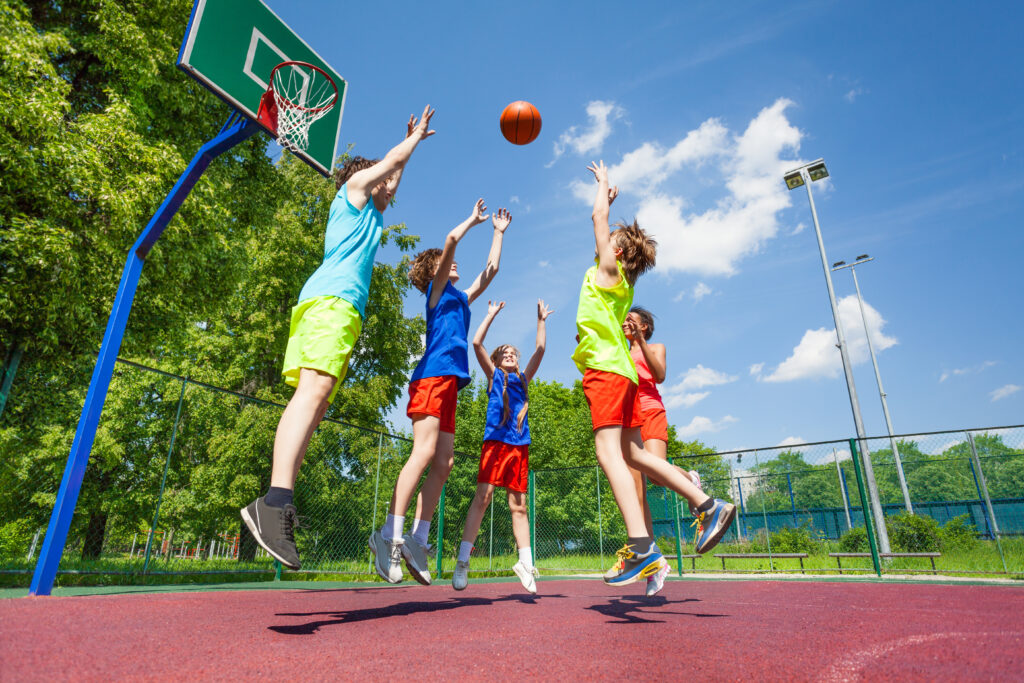The Power of Sports: 4 Powerful Ways They Shape Young Minds and Futures

Sports Participation is something science is increasingly proving to be a game-changer in child development.
Take a moment to picture a group of kids playing sports—racing across a soccer field, their voices carried by the wind. The air is filled with laughter, shouts, and the rhythmic thump of the ball. Behind this playful scene lies something far deeper than just a game.
Whether it’s basketball, gymnastics, swimming, or even a weekend karate class, getting involved in sports as a young person has profound and long-lasting effects. Recent research from multiple corners of the academic world confirms that sports aren’t just fun—they’re essential building blocks for a healthier, happier, and more successful life.
Kicking Off the Benefits: What the Science Says
Let’s start in Germany. A landmark study by Christina Felfe, Michael Lechner, and Andreas Steinmayr (2016) followed thousands of children over time to assess how sports affected their development. Their findings? Mind-blowing. Children who consistently participated in sports showed better school performance, higher self-confidence, and were more likely to be employed and satisfied with their lives as adults. And no—it wasn’t just because they were fitter or more energetic.
The magic lies in the “non-cognitive” skills that sports nurture: persistence, teamwork, self-discipline, goal-setting. Think of these as the secret sauce behind adult success. Sports, it turns out, are like life boot camps in disguise—complete with sweatbands and shin guards (Felfe et al., 2016).
Mind, Body, Social Life: A Triple Threat
Bhargav Sinha’s 2024 longitudinal study takes this idea even further. He followed young people over the course of several years to measure how sports participation influenced physical, social, and psychological health. The results painted a clear picture: kids who stuck with sports had better physical health, stronger peer connections, and lower levels of stress and anxiety.
And here’s something worth celebrating—these benefits were observed across diverse personality types and backgrounds. In other words, even if your child isn’t the next Serena Williams or doesn’t ooze team spirit like Ted Lasso, they can still thrive through sports. It’s not about being the best—it’s about showing up, being active, and growing through the experience (Sinha, 2024).
Starting Young: The Preschool Power Move
You might be thinking, Okay, but how early does this stuff really matter? Great question. Julia Jaekel’s 2024 research says: sooner than you think. Her study focused on physical activity in early childhood—think toddlers in motion—and found that regular activity was linked to improved cognitive development and self-regulation.
What’s self-regulation, you ask? It’s that magical superpower that helps kids stay focused, control impulses, and manage emotions—all things that help them later in school, relationships, and even their careers. Turns out, running around the playground or tumbling in a dance class may be doing more for a child’s brain than we ever realized (Jaekel, 2024).
The Real MVP: Lifelong Skills
Let’s face it—most kids won’t grow up to be pro athletes. But that was never the point.
The true value of sports lies in the lifelong habits and character traits it builds. Confidence. Resilience. Communication. Leadership. Whether it’s learning how to handle a tough loss, working through conflict with a teammate, or staying dedicated to practice, sports create the kind of life lessons that no textbook can teach.
In fact, many employers today are actively seeking these “soft skills.” So while your child may not land a sneaker endorsement deal, they may very well walk into a future job interview and knock it out of the park—thanks to the lessons learned on a court or field years before.
Final Whistle: Why It All Matters
In a world where screen time is up and physical activity is down, promoting youth sports isn’t just good advice—it’s a social necessity. These studies collectively tell us that investing in sports opportunities for kids isn’t about chasing medals—it’s about raising well-rounded, mentally strong, socially connected humans.
So, the next time you’re at a game, cheering from the sidelines, remember: you’re not just watching a match. You’re witnessing young people being shaped into confident, capable adults—one play at a time.
🌟 For more engaging learning ideas, visit our blog weekly! We share creative activities, language tips, and more to make learning exciting. Stay connected with the latest posts on the Langmobile blog! And don’t forget to check out awesome songs on our Apple Music, YouTube, and Spotify pages to help with your language learning!
References:
- Felfe, C., Lechner, M., & Steinmayr, A. (2016). Sports and Child Development. PLoS ONE, 11(5), e0151729. Link
- Sinha, B. (2024). The Impact of Sports Participation on Youth Development: A Longitudinal Study of Physical, Social, and Psychological Outcomes. ResearchGate. Link
- Jaekel, J. (2024). Early childhood physical activity and self-regulation: How movement supports cognitive development. Pediatric Research. Link

